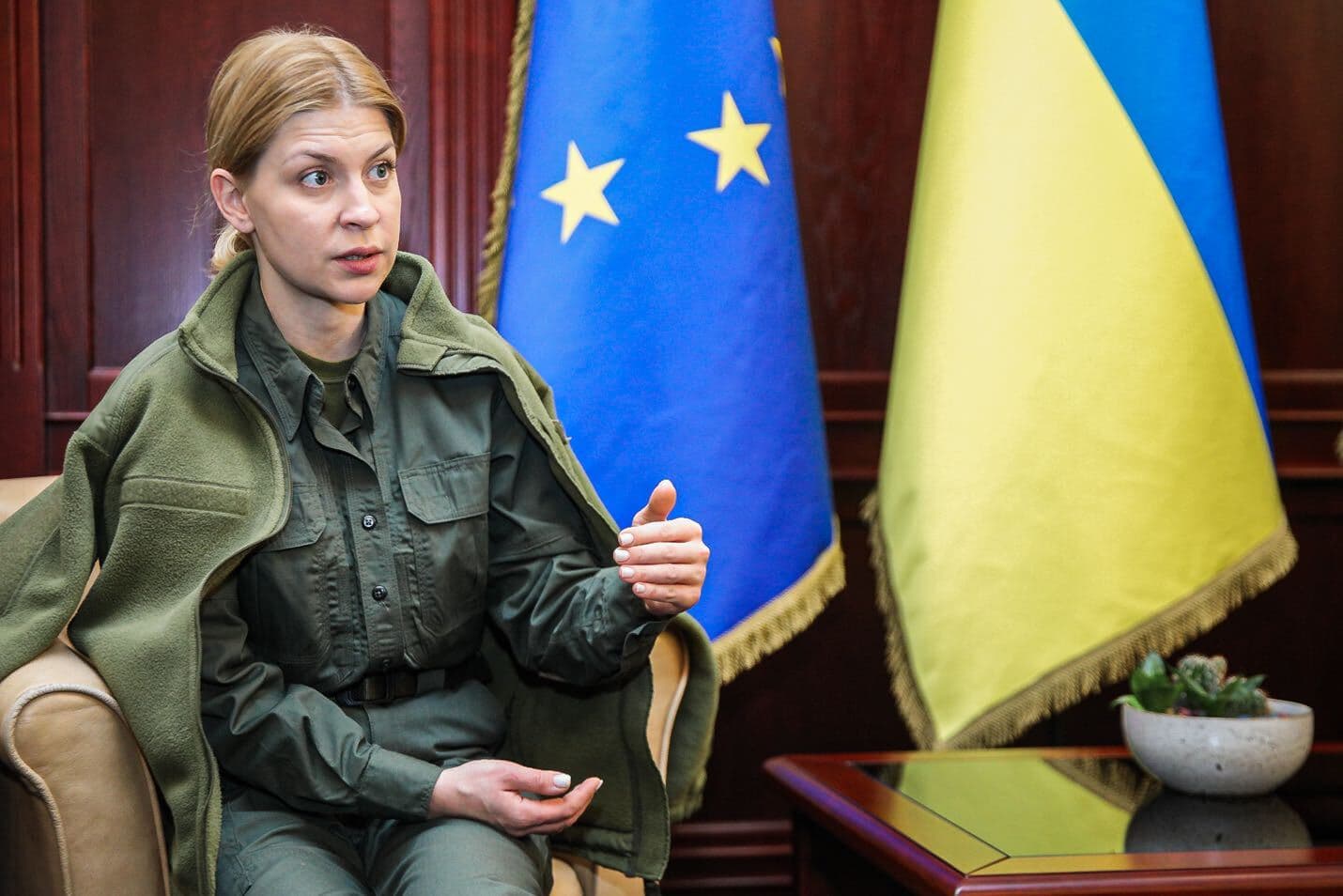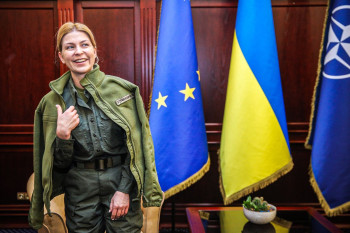Official: EU to give first evaluation of Ukraine's EU accession progress in May

The European Commission will give the first evaluation of Ukraine's progress in fulfilling the EU's "candidate criteria" in May, by which Kyiv will finish the implementation of most of the conditions, Deputy Prime Minister for European and Euro-Atlantic Integration Olha Stefanishyna said on March 13, as cited by European Pravda.
According to Stefanishyna, the interim oral assessment is expected to take place at a meeting of the EU General Affairs Council, with preliminary talks to be possibly held in Kyiv.
"And on March 20, I will participate in an informal meeting of the General Affairs Council where we will discuss all seven recommendations and determine a specific date (of the oral evaluation)," Stefanishyna told reporters.
In June, Ukraine was granted the status of a European Union candidate, the first step towards full-fledged membership.
Membership in the European Union has long been a key aspiration for Ukraine, reflected in the Ukrainian Constitution among the main goals. To achieve that goal, the country needs to fulfill European Commission conditions on issues related to justice, the rule of law, and anti-corruption efforts and then proceed with the negotiation process regarding EU membership.
Ukraine's progress in fulfilling these conditions has only been subject to expert assessments yet. After the spring oral evaluation, the European Commission will give an official one in October.
Stefanishyna said, as quoted by European Pravda, that Ukraine would finish implementing almost all of the "candidate criteria" before the interim assessment. "Several blocs have already been politically completed, technical issues remain... The tasks related to implementing the law on national minorities will remain (to be completed)."
The ethnic minorities bill, which was passed by the Ukrainian parliament on Dec. 13, has prompted criticism by the Romanian authorities and Ukraine's Romanian community, allegedly failing to sufficiently ensure the use of Romanian as a language of education in Ukraine.
According to Stefanishyna's assessment, the Ukrainian parliament will also pass a law on the structuring of Ukraine's advertising market, which "will allow Kyiv to declare the fulfillment of the media reform's criteria."
In December, President Volodymyr Zelensky signed into law a controversial bill on the media, which was criticized by Western and Ukrainian journalist organizations as an attempt to introduce censorship. The authorities have denied the accusation.

Stefanishyna said she was also confident in the positive assessment of the Constitutional Court's reform, despite Ukraine not appointing a foreign expert as the 7th member of the Ethics Council, a panel of experts supposed to approve or reject candidates for the Court jobs, as initially recommended by the Venice Commission.
Instead, Ukraine will make other changes to the procedure, which will reportedly give foreign experts the right to jointly block the selection in case of disagreement with Ukrainian colleagues.
"We did not find any legal grounds for having a seventh expert. We held negotiations with the Venice Commission and the European Commission and agreed that the model of selection of judges of the Court would be based on the models used for other judicial bodies, such as the Supreme Council of Justice. In particular, the decisions of the Ethics Council will be adopted by four votes," Stefanishyna explained.
A bill on the Constitutional Court, signed by Zelensky in December, was condemned by Ukraine's civil society and the West as the one derailing Ukraine's European integration. It will enable President's Office to handpick loyalists and fully control the Constitutional Court, according to legal experts and anti-corruption activists.
According to Stefanishyna, the EU should also consider the "anti-oligarchic" criterion as completed, despite Ukraine not planning to implement it in its initial form. She said that the Ukrainian government aimed to reduce the influence of oligarchs through anti-monopoly and anti-corruption measures without drawing up a controversial "oligarch register."
"In times of war, naming and shaming, i.e., naming certain persons subject to this law, is not a priority," the Deputy Prime Minister added.











